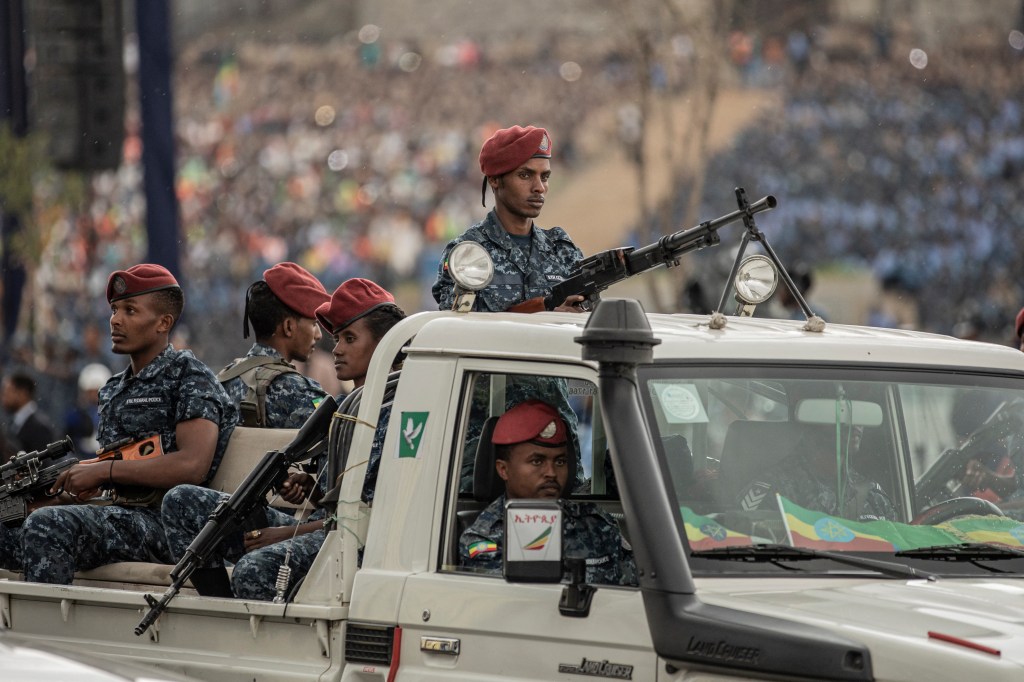Ethiopia’s 21-month-old civil war is accelerating the deterioration of press freedom in the Horn of Africa nation. The conflict between the federal government and the rebel forces led by the Tigray Peoples’ Liberation Front (TPLF) has prompted a media crackdown that extinguished the glimmer of hope sparked by the initial reforms of Prime Minister Abiy Ahmed.
Despite the government lifting the six-month state of emergency on February 15, 2022, authorities continue to announce new investigations into journalists.
Research by CPJ shows that Ethiopia now ranks with Eritrea as sub-Saharan Africa’s worst jailer of journalists. In 2021, CPJ documented the first killing of an Ethiopian journalist – Sisay Fida – in connection with their work since 1998. Sisay’s death was attributed by authorities to the Oromo Liberation Army, an insurgent group allied with the TPLF. CPJ continues to investigate the motive behind the killing of a second journalist, Dawit Kebede Araya, who was shot in Mekelle, Tigray, in January 2021, at a time when the city was in the hands of federal authorities.
CPJ wrote a briefing on the deteriorating conditions for Ethiopia’s journalists, the context of the crackdown, and recommendations to improve the country’s climate for press freedom. Read the briefing here.
- Taliban members beat Afghan journalist Selgay Ehsas, force her to record video message
- Rudaw reporter Barzan Ferman detained in northern Syria
- Gambian police attack, detain journalist Yusef Taylor
- DRC journalist Henry Hererimana Serushago in hiding after beating, threats from M23 rebels
- Sierra Leone politician shoves journalist Abdulai Gbla in parliament
- Iraqi journalists injured by security forces while covering Baghdad protests
- Yemeni journalist Tawfiq al-Mansouri health critical in Houthi detention
- Iraqi Kurdish authorities arrest NRT TV crew in Sulaymaniyah
- Myanmar journalist Maung Maung Myo sentenced to 6 years in prison
- CAR journalist Erick Ngaba threatened over report on opposition leader
- Honduran journalist Sonia Pérez criminally charged over reporting on Indigenous evictions
- CPJ calls for Ukraine to revise draft media law
- Bosnia and Herzegovina news website eTrafika threatened with ‘bloodshed’ over reporting
On Friday, July 29, Guatemalan police arrested journalist and president of the elPeriódico newspaper José Rubén Zamora, and raided the offices of elPeriódico. The charges against Zamora include possible money laundering, blackmail, and influence peddling. CPJ called for the immediate release of Zamora. “Judicial persecution against journalists is a mechanism of intimidation, and authorities in Guatemala need to put an end to their campaign to intimidate and threaten the press,” said CPJ Advocacy Director Gypsy Guillén Kaiser.
In May 2022, a Guatemalan official filed a criminal suit against three journalists from elPeriódico, including Zamora, under the violence against women law. Zamora was awarded CPJ’s International Press Freedom Award in 1995.
We need your input! CPJ and the Global Reporting Centre at the University of British Columbia are collaborating on a survey on disinformation and harassment targeting journalists. The survey will take approximately 15-20 minutes to complete, and all your responses will be anonymous by default. Take the survey here.
What we are reading
- Exclusive Q&A with Brazil’s Patricia Campos Mello — Jason Rezaian, The Washington Post
- Guatemalan journalist arrested in growing crackdown on political dissent — Rachel Pannett, The Washington Post
- ‘They Can Target Anybody’: India’s War on Free Press Is in High Gear — Kavitha Iyer, Time
- Brazil ‘failing to fully investigate’ Dom Phillips and Bruno Pereira murders — Andrew Downie, The Guardian
- I Wish I Could Ask Alaa Abd el-Fattah What He Thinks About the World Now — Zeynep Tufekci, The New York Times
- Afghanistan: How one TV presenter became a refugee — Sodaba Haidare, BBC News
- Ethiopia Gets Tough on Journalists Since Tigray Conflict — Fred Harter, Voice of America
